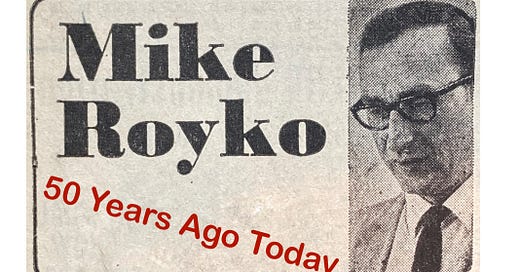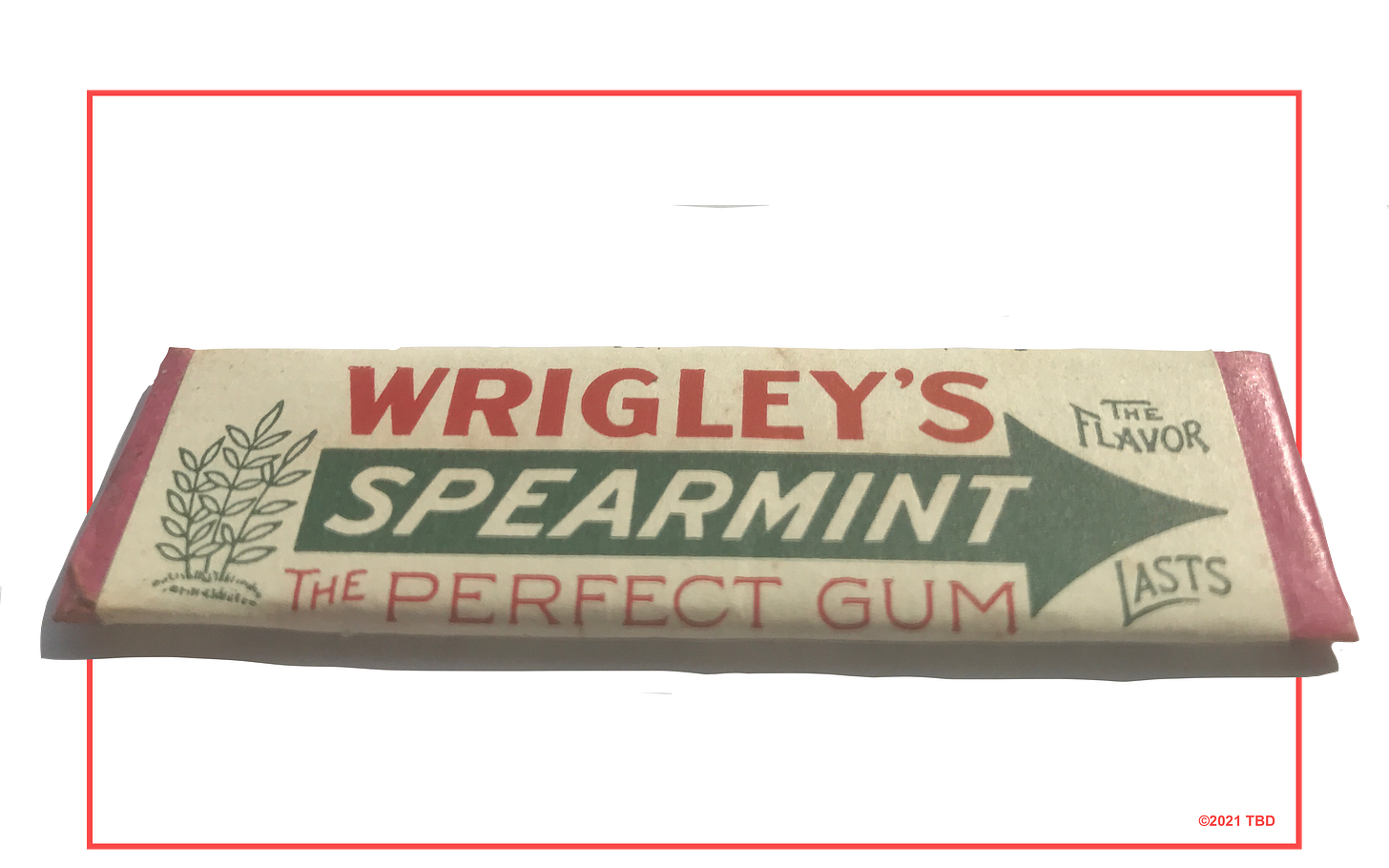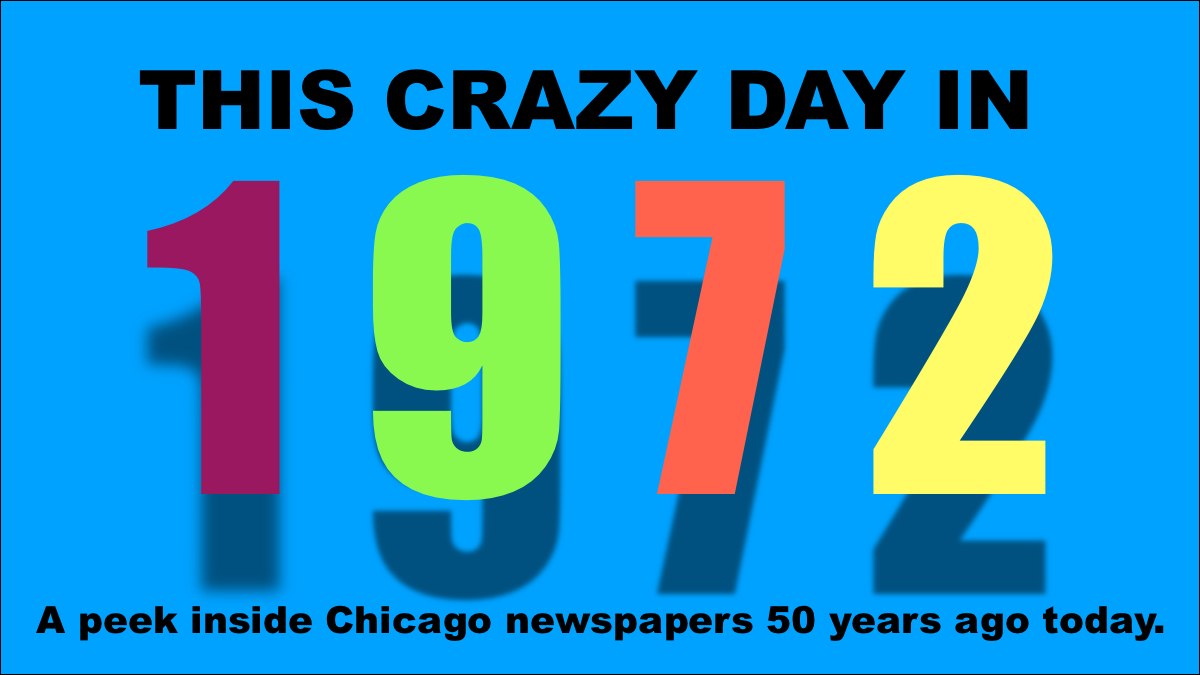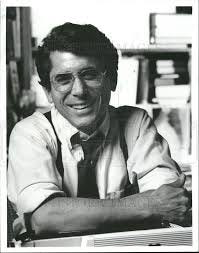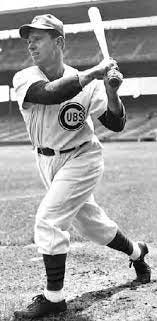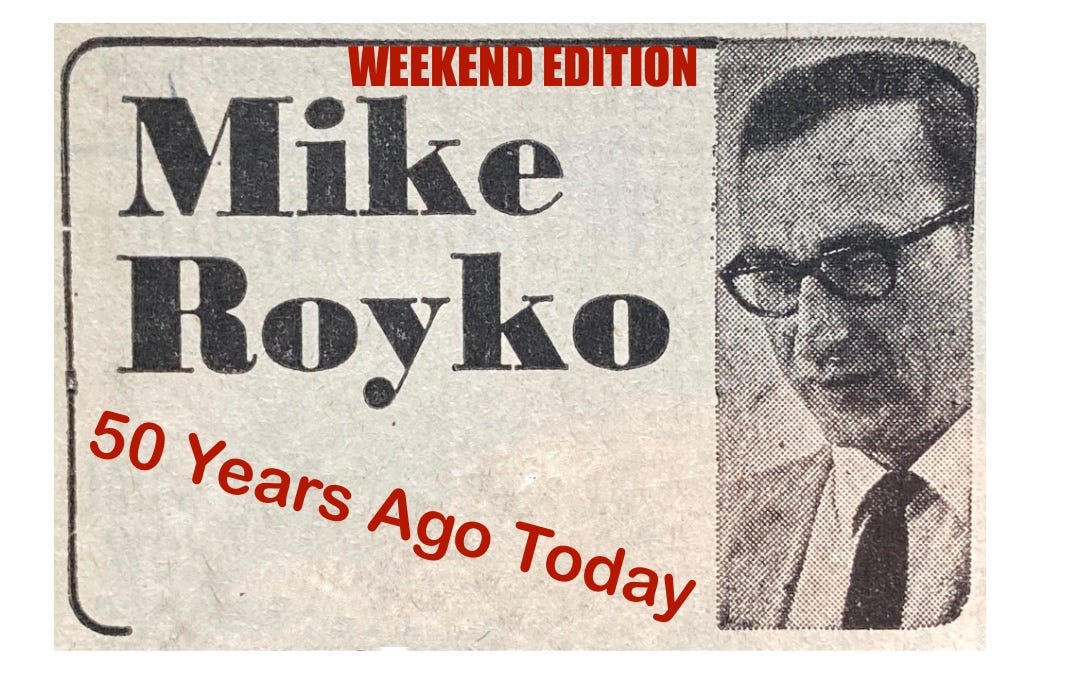Mike Royko 50 Years Ago Today: Cubs, Taxes, and Walter Jacobson
Weekly Compilation April 17-23, 1972
To access all site contents, click on the rose icon in the upper left corner or HERE.
Why do we run this separate item, Mike Royko 50 Years Ago Today? Because Steve Bertolucci, the hero of the serialized novel central to this Substack, “Roseland, Chicago: 1972,” lived in a Daily News household. The Bertoluccis subscribed to the Daily News, and back then everybody read the paper, even kids. And if you read the Daily News, you read Mike Royko. Read the daily Royko briefing Monday-Friday on Twitter, @RoselandChi1972.
April 17, 1972
An answer to chew on
Recall that the 1972 baseball player strike has just ended, though it already delayed the league’s opening day.
Now, on to another installment of Mike’s occasional column of “Letters, calls, complaints and great thoughts from readers.”
“C.K. Burke, Chicago: I wish you would write about the baseball players and their strike.
“I’ve been a Cub fan all my life, but when they start making those kinds of demands just for playing a game, I’m giving it up.
“Can you imagine somebody who gets $100,000 a year just for throwing or hitting a baseball also asking for a huge pension?
“If I were Mr. Wrigley, those guys would be out on the street. Where are our values?”
Mike’s “COMMENT: Since you mentioned Mr. Wrigley, think about how he earns his living. He makes little sticks of a rubbery product that we put in our mouths, chew on awhile, then spit out. His family has become fantastically wealthy, famous, powerful and respected by making these little rubbery sticks that people put in their mouths, chew on awhile, then spit out. Seems a lot stranger to me than paying a pension to a baseball player. I’d never buy a bleacher seat to watch nine guys chew gum.”
To fully appreciate the following letter, you might want to first check out Mike’s April 13, 1972 column, in which he recounted how cops were harassing Lonny Murphy, who was just running a fruit and vegetable stand at 4110 W. Madison. You can find the entire column in “Slats Grobnik and Some Other Friends.”
“JOHN SCHMIDKE, Public Relations, Walgreen Drugs: A police captain was quoted in your column as saying the police harass that vegetable and fruit peddler because Walgreen’s complained about the man. That’s absolutely untrue. In fact, our store located near his stand has bought produce from him when we’ve run short at our food counter. We consider him a friendly neighbor and have never complained about him to the police.”

“COMMENT: Comdr. Frederick Ingham also said Goldblatt’s complained and that, too, was untrue. But I can’t blame Cmdr. Ingrahm. What is a man supposed to say when asked why he’s picking on a fruit peddler--that he’s keeping the city safe from the menace of fruit flies?
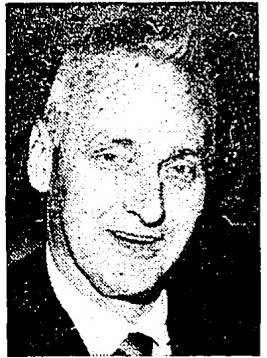
Don’t forget our Newspapers Circa 1972 chapter!
April 18, 1972
Ma’s quiet tax revolt
This is a classic, and you can read the full column in “Slats Grobnik and Some Other Friends.” I love when Mike writes about his mom. You don’t have to read a Mike Royko biography to see why he appreciated her so much.
“Every April 15, when taxes are due, I think of my mother,” writes Mike. That’s because Mrs. Royko waged a quiet, personal tax revolt.
“For about 20 years, while earning a taxable income running her own small business, she didn’t pay a nickel of income tax,” writes Mike. “She didn’t use loopholes. She wouldn’t have understood them.”
Mike’s mom just knew that after supporting her family by herself, “in her tiny tailor shop, sitting at a sewing machine 12 hours a day, six days a week,” there was nothing left for the government.
She didn’t worry about getting caught. She’d say: “I’ll tell them to put me in prison. If they won’t let me support myself, then they can support me.”
Two recurring Royko themes here--1) government waste and 2) loopholes for rich people.
1) Mike observes that his Mom was correct that she needed the money more than the government, and she didn’t waste it. If, instead, “the government got it, it would just design another military transport plane that can’t fly.”
2) “The loopholes are for the rich. For the ordinary person, the loophole turns into a noose.”
Tax reform will only come, Mike figures, if a few million hard-pressed, hard-working Americans have the guts to follow Mrs. Royko and dare the government to put them in jail. Where would government put them all?
“But it won’t happen, because few of us have enough courage,” Mike admits. “I got my check in on time, and I probably paid more than old man Getty. Ma would be ashamed of me.”
April 19, 1972
Here it is: The Cub quiz
Mike’s annual Cub quiz!
“This test separates the true Cub fans…from those who took an interest only after Wrigley began hiring professional athletes.”
Mike doesn’t think the current “rabble known as the Bleacher Bums” will get many of these questions right, “assuming someone reads this to them.”
Mike says it’s so hard, he gets half the answers wrong, “and I write the test.”
The prize for 100% correct: “a snip of hair from Leo Durocher’s head—
—or a stick of Wrigley Spearmint gum that has been pre-chewed by Mr. Wrigley himself.”
“Q. The Cubs once had a rookie pitcher named Lee Meyers and he became a great hero in spring training. How many games did he win?
A. - He didn’t win any because he didn’t make the team. But he won the cheers of his teammates and of himself when he married Mamie Van Doren. You can’t win them all, but it sometimes doesn’t matter.”
“Q- Which TV commentator used to be a Cub bat boy?
A--The immortal Walter Jacobson. But he said he didn’t enjoy it because the rowdy players always threw their underwear at him. Now that he is on TV, nobody does that, except me.”
“Q--You have two seconds to answer this easy one: When a ball goes over the left Field wall in Wrigley Field, what street does it land on?
A--Waveland Av. But the way Jack Brickhouse yells, you’d think it landed in his ear.”
If you dig Mike Royko, you’ll want to see the news he’s writing about. Check it out here!
April 20, 1972
Walter’s out of the Cub quiz
Clearly we’ll need to do a post on the whole Mike Royko-Walter Jacobson relationship, if that’s the right word for it. For today, we’ll confine ourselves to the column—though noting that Walter will become one of Mike’s frequent targets.
“Walter Jacobson, the noted television commentator, has accused me of telling a lie about him,” Mike opens.
Jacobson called Mike to “indignantly” deny Mike’s report in yesterday’s Cub quiz that when he was a young batboy for the team in 1952, the players threw their underwear at him.
Mike says this is a serious matter, and he’s prepared to defend his professional ethics. His account:
“I remember Jacobson telling me about the underwear. The telling took place some years ago, when he and I were courthouse reporters. [Note: Walter worked for Chicago’s American, which was revamped in 1969 into Chicago Today.] It may have been during the lull in a trial, or as we sat around the pressroom. The setting escapes me.
“Nor do I recall exactly how the subject came up. I doubt that Jacobson would have just blurted: ‘Did I ever tell you about the time Hank Sauer hit me in the head with his Fruit of the Loom jockey shorts?’”
But Royko insists it happened. Royko was impressed—he was even thrilled the time a foul ball hit by Andy Pafko hit his little brother in the head. Mike is surprised by Walter’s indignation. And he is “saddened” by Walter’s response.
“It seems to be another case of a man achieving fame and success and turning his back on his early years. Jacobson now appears in living color, talking about important affairs of state, but he should not look with disdain on those times when Paul Schramka tried to bean him with his athletic supporter.” [Note: In 1972, Walter is on Channel 5 news.]
However, “At Jacobson’s request he will be deleted from any future Cub fan quiz.
“Now I must go and watch the late news show. I never miss Jacobson’s commentary. I always throw my underwear at the screen.”
April 21, 1972
A tale of two tax rates
A man from Northbrook calls Mike to sputter in rage over his new property taxes, the highest anywhere in Cook County, about 17% higher than Chicago. How would Mike like to pay that??
“I told him I wouldn’t mind. Spending money doesn’t bother me if I’m getting something for it.
“And when I compare the way the tax dollar is spread around in Chicago with the way it is in a suburb like Northbrook, I feel like I’ve been ordering watered drinks in a Cicero clip joint.”
BAM.
Mike compares: Two identical houses assessed at $10,000 for tax purposes would create a tax bill of $785 for a Chicagoan, and $919 for someone in Northbrook.
About 2/3 of the Northbrook bill goes for schools, which are modern, with small classroom sizes, and students scoring about 15% above national norms. In Chicago, only 40% of the tax bill goes to schools, which are lousy.
“Since the Chicagoan is spending less on schools, he must be spending more somewhere else….And the answer is City Hall, and the various services it provides.”
The Chicago tax bill includes $301 for city government. “Since the city man is spending more, it stands to reason that he would be getting more. And he is. He is getting more payrollers.”
Northbrook has one worker per 300 residents, compared to one per 85 Chicago residents. Which doesn’t include the park district.
“That’s enough to have one [city employee] sleeping on every block, and on some warm days, some are.”
“But there’s one thing to be said for spending money on payrollers instead of on schools and parks,” Mike concludes. “With only 120 employees, Northbrook couldn’t throw much of a St. Patrick’s parade.”
April 22-23, 1972
As we here all know, weekends could be sad for a Daily News family because Mike Royko wasn’t in the Daily News’ single weekend edition. So we look for Mike elsewhere on weekends.
This week, we do what we should have done last week: Note the honor bestowed on Mike on April 11 when the Ridgefield, Connecticut school board “banned” his 1972 best-selling biography of Mayor Daley, “Boss.”
To be fair, the Ridgefield school board simply voted not to include the book on a reading list for an elective course. In last week’s THIS CRAZY DAY IN 1972, we covered the wire service article printed by the Daily News on April 11 after the board’s vote, and the April 15-16 Daily News editorial congratulating Royko and mocking the school board.
The wire service article contained no juicy quotes from people irrationally afraid of “Boss.” The district’s superintendent spoke in favor, and even the board member who cast the deciding “no” vote didn’t sound too off-kilter: “‘I am not censoring books,’ said Mrs. [Lodi] Kysor Tuesday. ‘I am just doing my job to review books when we are trying to improve the curriculum. I think it was a very good book. I think we just could have a better book to put in the school as a public education.’”
Still, there was the required and enjoyable fun response from Mike Royko: “I have ordered the removal of ‘A Connecticut Yankee in King Arthur’s Court’ from my children’s reading list. Take that, Lodi!’”
For some reason, the Daily News saved all the good Ridgefield quotes for its editorial. Also, the Daily News editorial—embarrassingly, really—made a point of saying that it was happy the kerfuffle “did not go unnoticed by the Eastern press,” including the New York Times.
Here, we’ll repeat some of those good quotes from the Daily News editorial, and then give you the interesting bits from the New York Times account.
This is cheating a little since many of you read TCD1972, and saw the Daily News parts last week. Sorry about that!
First, the Daily News editorial.
“We are glad that the action of the Ridgefield, Connecticut school board in banning Mike Royko’s book did not go unnoticed by the Eastern press. The Danbury (Conn) News Times and the Bridgeport Sunday Post hung out the board members’ brave quotes (‘radical, revolutionary, anti-American’) for all to see, and the New York Times said—unexceptionably from our viewpoint—that the introduction of literary or political criteria (or worse, an effort to prejudge ‘truth’ across 1,000 miles) was ‘a threat both to education and to freedom.’”
“What Mike did in his book…was to tell the story of the last of the big city bosses and his political organization with all its scars and warts—no more, no less….But the town of Ridgefield, like many another American town, is rich, comfortable, and more than a little uptight about social problems. It would be happy if black people, young people, question-raisers, demonstrators and the rest of the troublemakers would go away—or be put away. And by Gad, their children are going to come up believing in these same Eternal Verities if they have anything to say about it.
“So they banned Mike’s book. As one Ridgefield citizen observed, ‘Here again we have a book before us that ridicules the American way of life.’ And another added: ‘I believe it’s all part of a giant conspiracy.’
“That last got to us. If ever there was a loner, a solitary goer and doer on the Chicago scene, it’s Royko.
“But that’s beside the point. The point is that Royko is a revolutionary—an agent of the same dangerous stripe as that other revolutionary who wrote:
“If men are to be precluded from uttering their sentiments on a matter which may involve the most serious and alarming consequences that can invite the consideration of mankind, reason is of no use to us, the freedom of speech may be taken away, and dumb and silent we may be led, like sheep to the slaughter.’
“We do think that Mike turns a more succinct phrase than George.
“Washington, that is.”
Now the New York Times account from April 11, 1972—even though we absolutely do not care whether the New York Times notices something going on with a Chicago writer’s book.
“The book, ‘Boss’ by Mike Royko, a Chicago newspaper man, had been selected by the teaching staff for an elective senior course on American politics, but the board rejected it by a 3‐to‐2 vote after a heated debate,” writes the Times.
Ridgefield school board member Leo F. Carroll, former acting head of the Connecticut state police, voted against “Boss” for its portrayal of police: “The first time I opened the book I came across a section that said the police had burglarized some establishments belonging to peace groups. Now tell me, do you think a policeman would do something like that? Well, my conscience is clear—I object to any book that doesn't tell the truth.”
Joseph Negreen, identified as a “local businessman,” “strongly opposed” the book after “glancing at various passages” because: “It downgrades the police departments and the political structure of this country. It plays right into the hands of the Communists and those liberal segments who border on Communism. I don't object to both sides of the picture, but kids are being indoctrinated with this same thing day in and day out.”
The Times also provides a quote from the school superintendent who supported “Boss,” which gives you some hope for Ridgefield: “‘We are talking about 12th‐grade students—many of them old enough to vote,’ he said. ‘They have read about [Mayor Daley] in the newspapers and they've seen on television the events that occurred in Chicago in 1968.’” In other words, the 1968 Democratic convention’s police riot in Grant Park.
And the Times did not forget the required quote from a student, saying exactly what we expect to hear: “‘It's pretty silly of the board to stop students from reading the book,’ said Linda Cosgrove, a high school senior. ‘A lot of the kids are conservative like their parents and they wouldn't have been interested in the book. But now they'll probably try to read it.’”
The New York Times quote in the Daily News editorial seems to be from a NYT editorial, but the NYT archives don’t show anything but the news articles.
In addition—and I didn’t notice this in the past week’s Chicago’s papers—the Times reports on April 20 that the Ridgefield school board reversed the decision to “ban” “Boss” at a special April 19 meeting.
Per the Times:
The school board chairman, Lodi Kysor, who cast the deciding vote last week breaking a 3‐3 tie, did not vote last night. She said she had called a special meeting for a second vote because the first vote had resulted in a great deal of “misunderstanding.”
Among those objecting to the earlier decision was the Connecticut Civil Liberties Union, which said the vote against the book represented “a no‐confidence vote for the free market, of ideas.” It said it would consider a court test if any student affected by the ban asked for its assistance.
The vote last night will allow use of the book as supplemental reading material in a 12th‐grade politics course and will authorize the purchase of 25 copies.
Remember when the ACLU didn’t want to ban books?
By the way, this feature is no substitute for reading Mike’s full columns. He’s best appreciated in the clear, concise, unbroken original version. Mike already trimmed the verbal fat, so he doesn’t need to be summarized Reader’s Digest-style, either. Our purpose here is to give you some good quotes from the original columns, but especially to give the historic and pop culture context that Mike’s original readers brought to his work. You can’t get the inside jokes if you don’t know the references. Plus, many columns didn’t make it into the collections, so unless you dive into microfilm, there are some columns covered here you will never read elsewhere. If you don’t own any of Mike’s books, maybe start with “One More Time,” a selection covering Mike’s entire career and including a foreword by Studs Terkel and commentaries by Lois Wille.
Do you dig spending some time in 1972? If you came to MIKE ROYKO 50 YEARS AGO TODAY from social media, you may not know it’s part of the book being serialized here, one chapter per month: “Roseland, Chicago: 1972.” It’s the story of Steve Bertolucci, 10-year-old Roselander in 1972, and what becomes of him. Check it out here.
To get MIKE ROYKO 50 YEARS AGO TODAY in your mailbox weekly along with THIS CRAZY DAY IN 1972 and new chapters of the book—
SUBSCRIBE FOR FREE!

